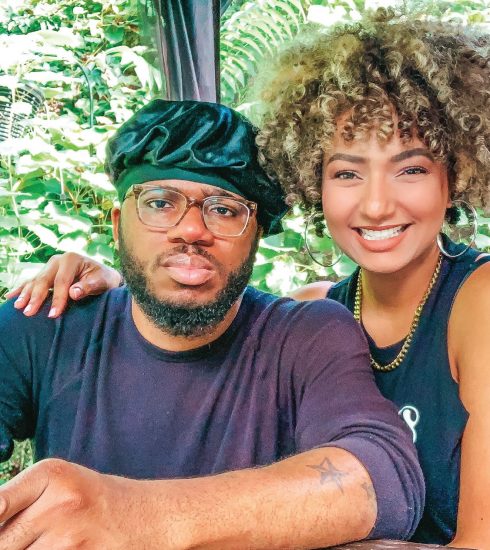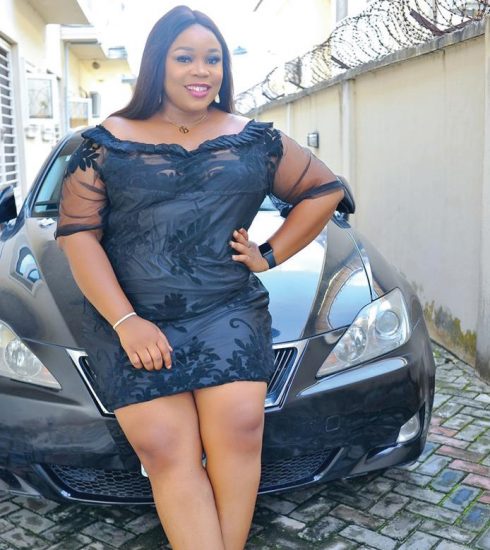Redefining Fashion With Frugirls
A renewed commitment to saving the planet from a ruinous existence has fashion enthusiasts growing an appetite that favours shopping sustainably. Daring millennials and Gen Zers are at the forefront of this disruption. Unlike conservative baby boomers, they are willing to embrace recycling as the means to keep up with emerging trends, and through a frugal lifestyle are cutting down spendings on clothes. Deliberate, gender-specific startup, Frugirls, founded by, Onyeka and Ifeoma Nwobu has opened up a channel so that a community of bold women and girls can feel comfortable in their skin without breaking the bank. But there is a much bigger picture showing how the fashion industry can help mitigate climate change.
How do you imagine thrift fashion at Frugirls?
We have a standard procedure for sourcing the pieces, so we try as much as possible to source highquality clothes. They are not necessarily brand new but also not old. Sometimes, we draw up a mood board depending on the time of the year and we research what the audience would truly like. This is because we are community-based and we function a lot based on feedback. The second step is sourcing – we get the pieces and advertise them. There are photoshoots from which content is created. After that, we go through the process of dry cleaning, and we package and send out. That is the cycle in a nutshell.
Which type of clothing design is available on your platform?
People don’t care so much for brands, they just want good clothes. If they make a purchase and find out that it is for example, “Gucci”, then it is fine. But they won’t exactly buy something because it is Gucci. They will buy because of the style, the quality, the sizing – so many factors that usually come before the brand name itself. We do have some branded items but that’s not what we try to sell. What we sell is the assurance of quality, a lifestyle – teaching the audience that they can shop sustainably.
How do you connect a beautiful gown in your wardrobe with the women who want it in a resale? Is there a wide market for this?
This ties back to how we are able to maintain the ethos of sustainability. We have monthly drops and run an audio subscriptionbased model as well. Most of our followers know to be subscribed to our mailing list which is where we give updates. We have drops once every month and we are in partnership with a social commerce platform called Scradder. To connect with Frugirls, it is through email for new drops, Scrader to access pieces that have not been sold, and then Instagram.
With strong voices calling for an effort to mitigate climate change playing in the background, a business model set up to curb wastage and encourage recycling is most likely to succeed. What’s the link between the Frugirls brand and sustainable fashion?
It is pretty straightforward to be honest. At Frugirls, we provide second-hand wears, and summarily, that is thrifting. Thrifting is a circular fashion practice of reselling pieces that have been worn or could be new, but the owner does not want that anymore. What that means in turn is when someone is not quite sure what to do with a dress, they resell it. That helps the environment by cutting down waste and someone is buying what has already been produced. What thrifting is doing is slowing down the production process.
Two years in, your resale brand has grown an image and a presence at the Lagos Fashion Week. What drove the speedy progression?
The first thing is community. For us, we have been able to build super fans who sort of believe in what it is we are building at Frugirls. What a super fan does is that they speak about your brand and wherever a niche has been mentioned. When we set out to build the brand, we set out to do it for girls like us and stuck to that. In our business decision, we think about how this affects these girls as well.
Have you noticed a cultural shift concerning thrift fashion? What’s driving the switching of behaviour?
On a larger scale, thrift is a lot more accepted because of the young generation we are dealing with now. There used to be a stigma from the baby boomers who say: “you are wearing somebody’s clothes – you don’t know if the person is cursed”, and it has come a long way from that time. In Frugirls’ circle, people are proud to say they got something from us because of the way the brand is.
Do you see how technology can cover gaps limiting thrift fashion audiences from second-hand high-end clothing their body would enjoy?
Technology is bridging the gap for any business. If you are doing anything without tech, you are most likely working hard and not smart. The circular fashion industry is in its formative years. Soon, there will be integration which is already happening for us. We don’t have our independent tech platform yet, but to make things easier, we leverage opportunities. Whether you are a circular fashion initiative or not, in the fashion industry, you have to adopt more unique tech approaches to your business.
Can you define the social behaviour of the audience coming to you?
It is pretty obvious. First of all, they are girls and young women. They are interested in trendy stuff and they are social media savvy.
What do you imagine a green future would look like from a fashion prism?
Where we can cut down on production because that seems to be the major problem. If we can do that, we can cut down on carbon emissions and landfills. A green future would just mean less production in fashion.
Frugirls was involved in the SwapShop experience that was created at the Lagos Fashion Week in October. What is the significance of this from an audience perspective?
It was a sensitisation programme. Another approach to fashion that is more sustainable.
Why is Frugirls passionately dedicated to girls?
Brands are built out of people. Frugirls is literally us. It is the reason we say that it is for girls like us. It is what we are passionate about and our God-aligned purpose. We come from a family where we were born into thrifting and had a frugal mother. Her fashion decisions for us impacted our lives financially, and this is why we live sustainably. This drove us to build the brand. It is about mirroring ourselves and being able to relate to the needs of the Nigerian girl. That is the inspiration behind the female-driven platform.






